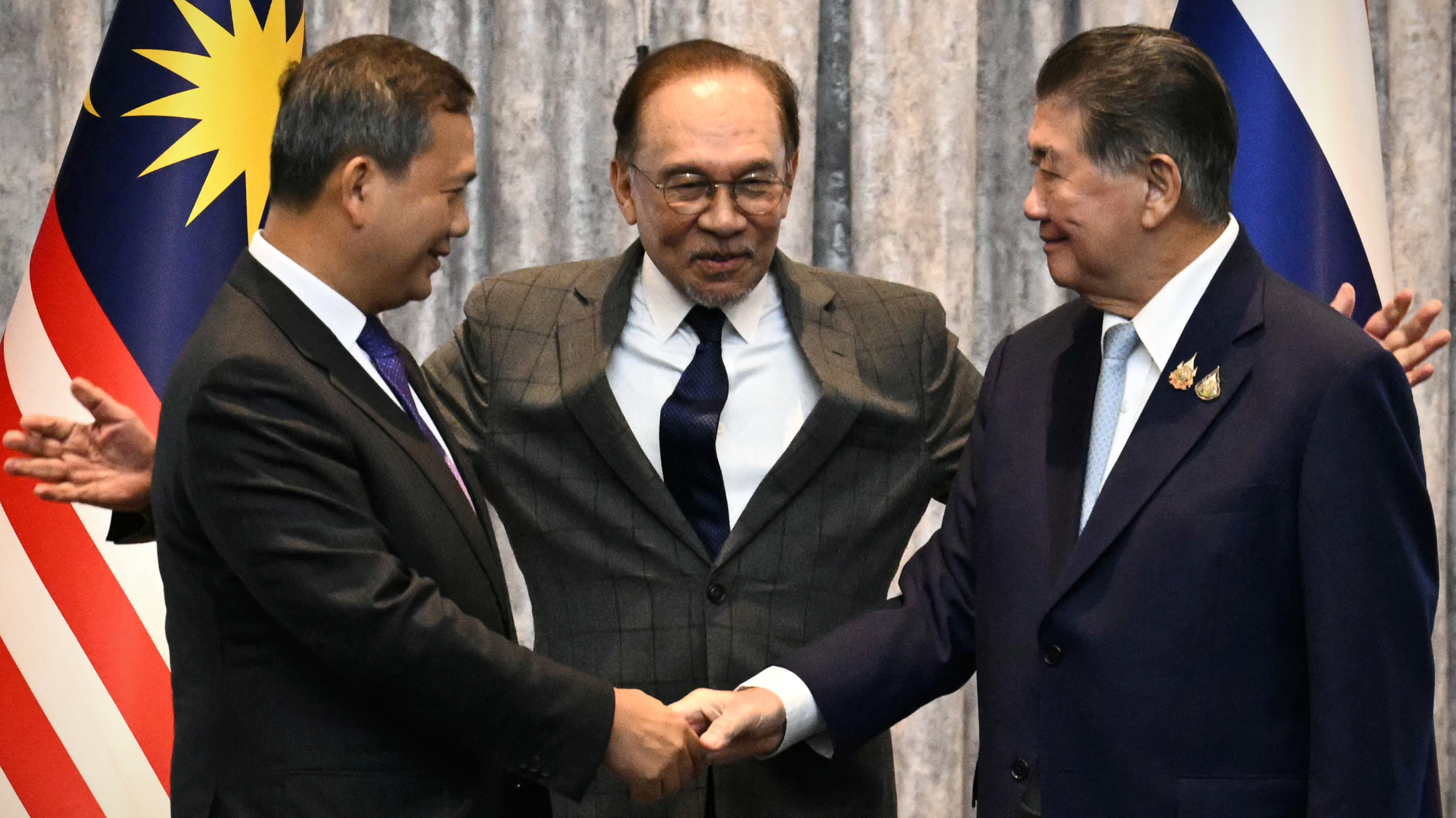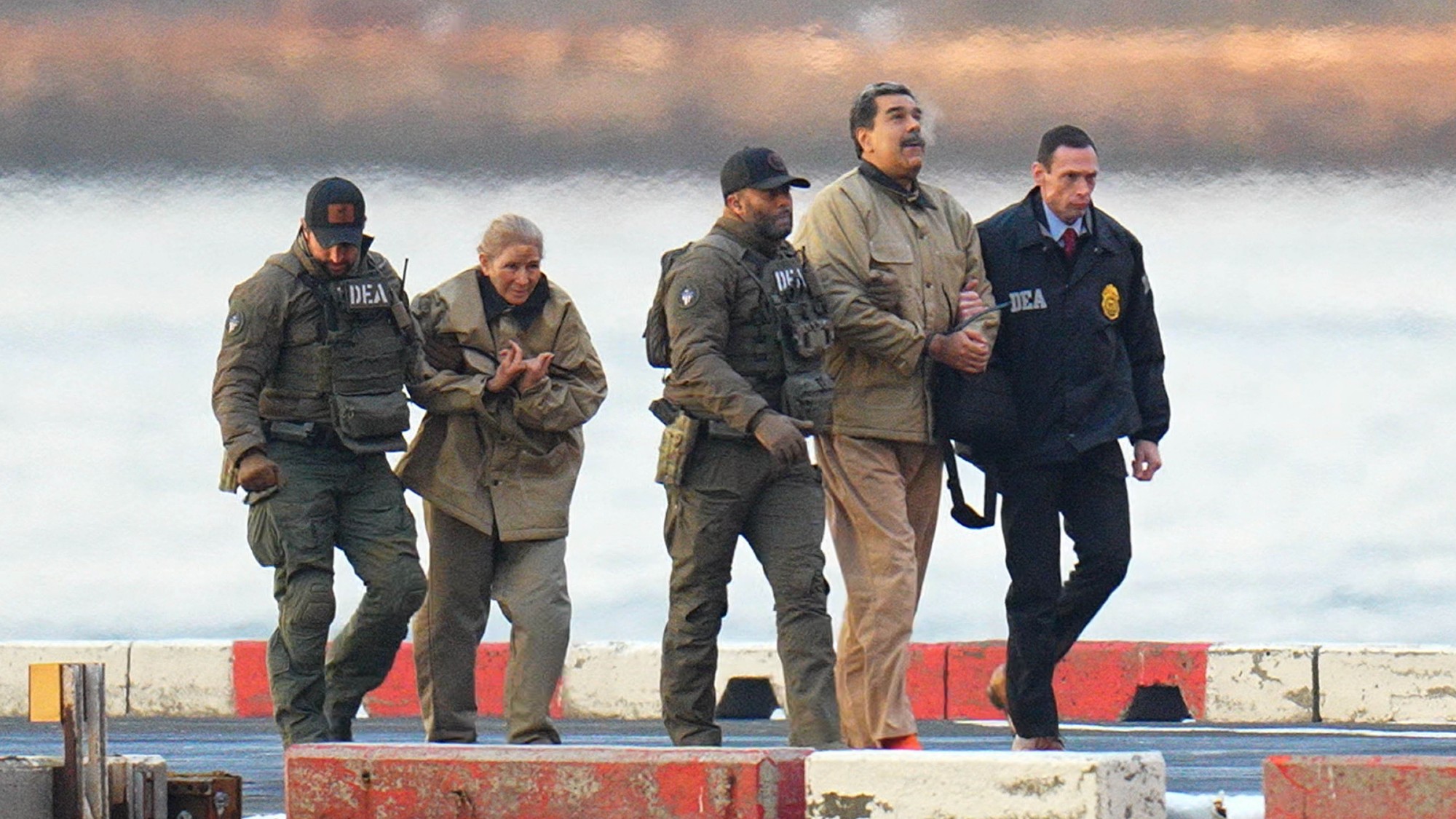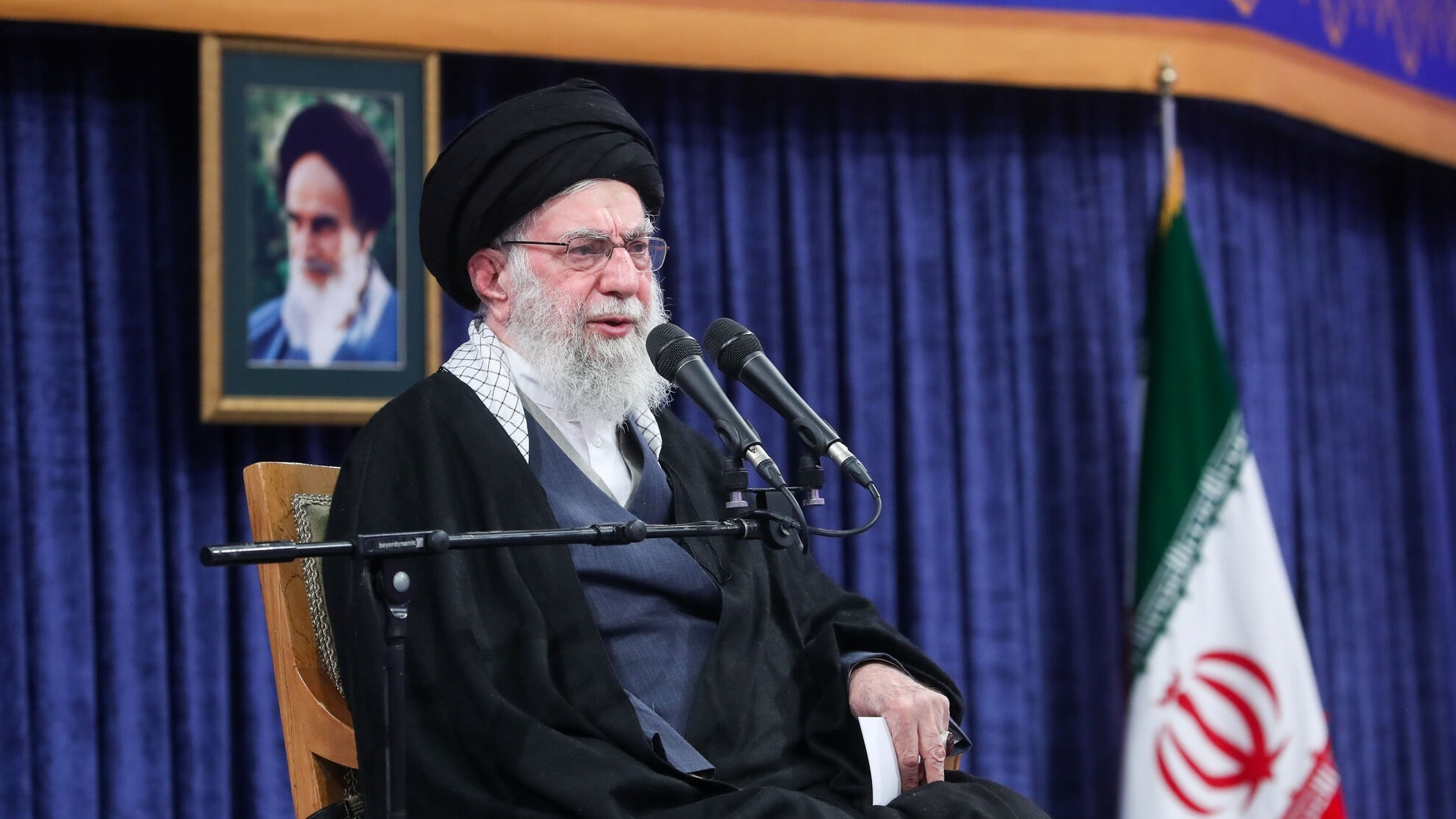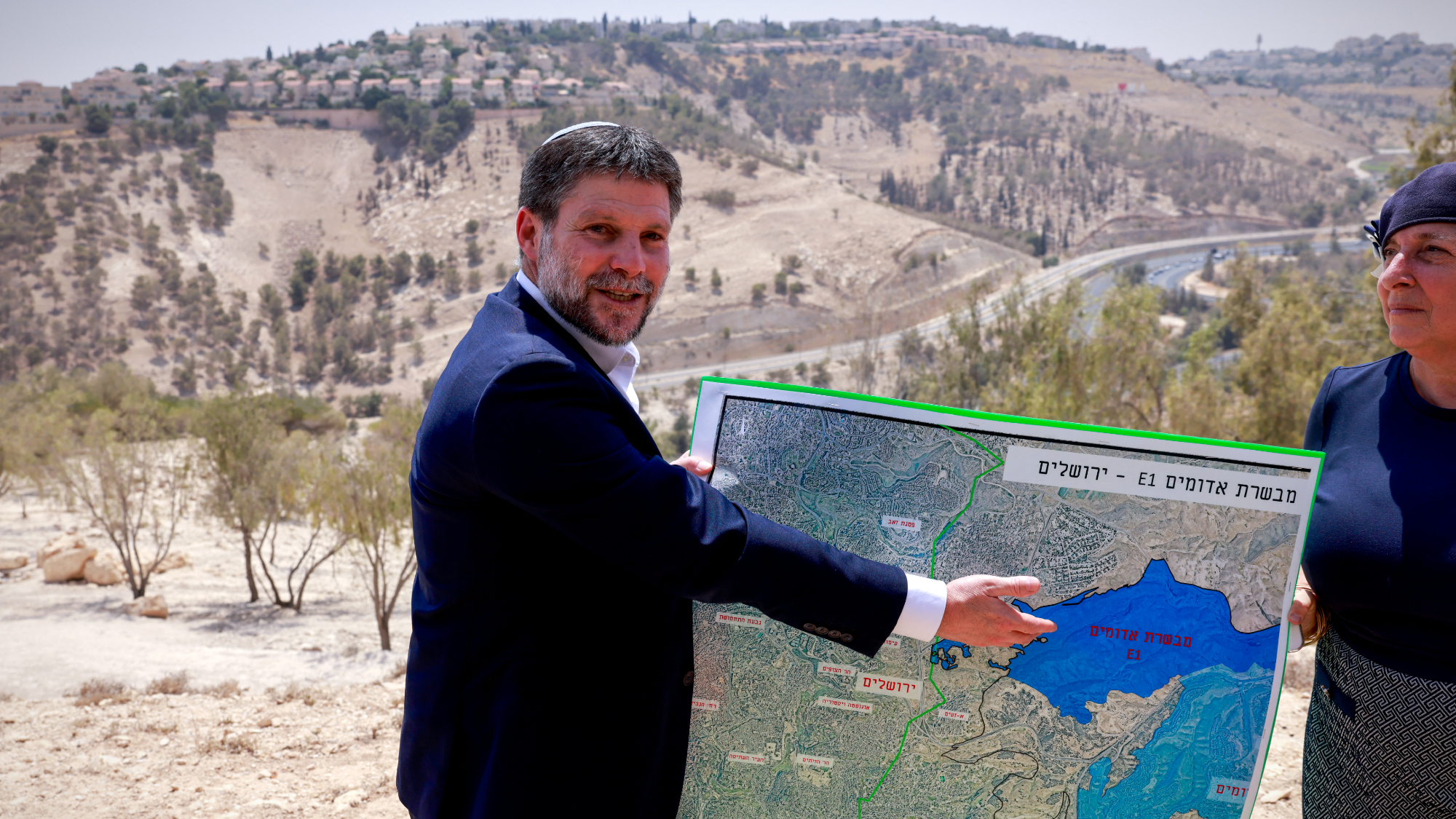Thailand, Cambodia agree to ceasefire in border fight
At least 38 people were killed and more than 300,000 displaced in the recent violence


A free daily email with the biggest news stories of the day – and the best features from TheWeek.com
You are now subscribed
Your newsletter sign-up was successful
What happened
Cambodia and Thailand agreed to an "immediate and unconditional" ceasefire Monday after five days of intense fighting along their shared border. The ceasefire, negotiated in Malaysia with involvement from the U.S. and China, took effect at midnight.
At least 38 people, most of them civilians, were killed and more than 300,000 displaced in the recent violence, the worst between the two Southeast Asian nations in more than a decade.
Who said what
"This is a vital first step towards a de-escalation and a restoration of peace and security," Malaysian Prime Minister Anwar Ibrahim said at a news conference in Putrajaya, flanked by Cambodian Prime Minister Hun Manet and acting Thai Prime Minister Phumtham Wechayachai.
Cambodia and Thailand, "which both amassed troops in their border regions, blamed each other for instigating the violence and said they acted in self-defense," The Washington Post said. The two countries have "wrangled for decades over border territory," Reuters said, and this skirmish, which began with an exchange of fire that killed a Cambodian soldier in May, led to a "full-blown diplomatic crisis that brought Thailand's fragile coalition government to the brink of collapse."
The Week
Escape your echo chamber. Get the facts behind the news, plus analysis from multiple perspectives.

Sign up for The Week's Free Newsletters
From our morning news briefing to a weekly Good News Newsletter, get the best of The Week delivered directly to your inbox.
From our morning news briefing to a weekly Good News Newsletter, get the best of The Week delivered directly to your inbox.
What next?
It was "unclear" if yesterday's agreement "would lead to a genuine truce," The New York Times said. The ceasefire announcement included no details on how it would be enforced or "who would verify if it was being upheld," and "nationalist feelings are still running high on both sides."
A free daily email with the biggest news stories of the day – and the best features from TheWeek.com
Peter has worked as a news and culture writer and editor at The Week since the site's launch in 2008. He covers politics, world affairs, religion and cultural currents. His journalism career began as a copy editor at a financial newswire and has included editorial positions at The New York Times Magazine, Facts on File, and Oregon State University.
-
 Local elections 2026: where are they and who is expected to win?
Local elections 2026: where are they and who is expected to win?The Explainer Labour is braced for heavy losses and U-turn on postponing some council elections hasn’t helped the party’s prospects
-
 6 of the world’s most accessible destinations
6 of the world’s most accessible destinationsThe Week Recommends Experience all of Berlin, Singapore and Sydney
-
 How the FCC’s ‘equal time’ rule works
How the FCC’s ‘equal time’ rule worksIn the Spotlight The law is at the heart of the Colbert-CBS conflict
-
 Rubio boosts Orbán ahead of Hungary election
Rubio boosts Orbán ahead of Hungary electionSpeed Read Far-right nationalist Prime Minister Viktor Orbán is facing a tough re-election fight after many years in power
-
 Key Bangladesh election returns old guard to power
Key Bangladesh election returns old guard to powerSpeed Read The Bangladesh Nationalist Party claimed a decisive victory
-
 EU and India clinch trade pact amid US tariff war
EU and India clinch trade pact amid US tariff warSpeed Read The agreement will slash tariffs on most goods over the next decade
-
 Maduro pleads not guilty in first US court hearing
Maduro pleads not guilty in first US court hearingSpeed Read Deposed Venezuelan leader Nicolás Maduro and his wife Cilia Flores pleaded not guilty to cocaine trafficking and narco-terrorism conspiracy
-
 Iran’s government rocked by protests
Iran’s government rocked by protestsSpeed Read The death toll from protests sparked by the collapse of Iran’s currency has reached at least 19
-
 Israel approves new West Bank settlements
Israel approves new West Bank settlementsSpeed Read The ‘Israeli onslaught has all but vanquished a free Palestinian existence in the West Bank’
-
 US offers Ukraine NATO-like security pact, with caveats
US offers Ukraine NATO-like security pact, with caveatsSpeed Read The Trump administration has offered Ukraine security guarantees similar to those it would receive from NATO
-
 Hong Kong court convicts democracy advocate Lai
Hong Kong court convicts democracy advocate LaiSpeed Read Former Hong Kong media mogul Jimmy Lai was convicted in a landmark national security trial
